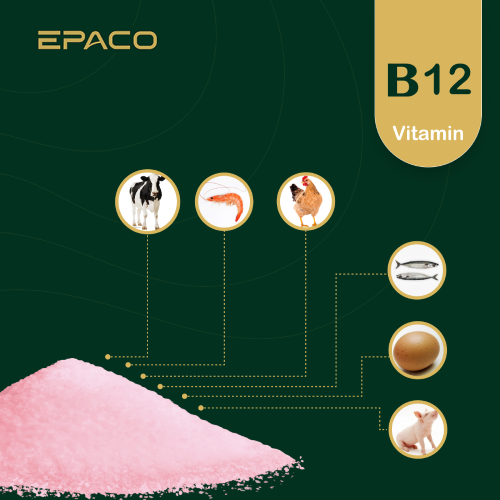Vitamin B12 (cobalamin) is unique among vitamins in that it is synthesized in nature only by microorganisms. It is the last vitamin to have been discovered (in the late 1940s) and is the most potent on a weight basis. Vitamin B12 deficiencies are characterized by a wide variety of signs in various animal species. The natural concentrations of this vitamin in feeds are generally low. All Nonruminant Species Require Dietary Sources Of Vitamin B12. Vitamin B12 is an essential part of several enzyme systems, with most reactions involving the transfer or synthesis of methyl groups. Although the most important function of vitamin B12 is in the metabolism of nucleic acids and proteins, it also functions in carbohydrate and fat metabolism.
In growing chickens, a deficiency of vitamin B12 results in reduced weight gain and feed intake, along with poor feathering and nervous disorders. Although deficiency may lead to perosis, this is probably a secondary effect due to a dietary deficiency of methionine or choline as sources of methyl groups. Vitamin B12 may alleviate perosis because of its effect on the synthesis of methyl groups. Other signs reported in poultry are anemia, gizzard erosion, and fatty infiltration of the heart, liver, and kidneys. In breeders, hatchability can be markedly reduced, although several weeks may be needed for signs of deficiency to appear.
Vitamin B12
Vitamin B12

